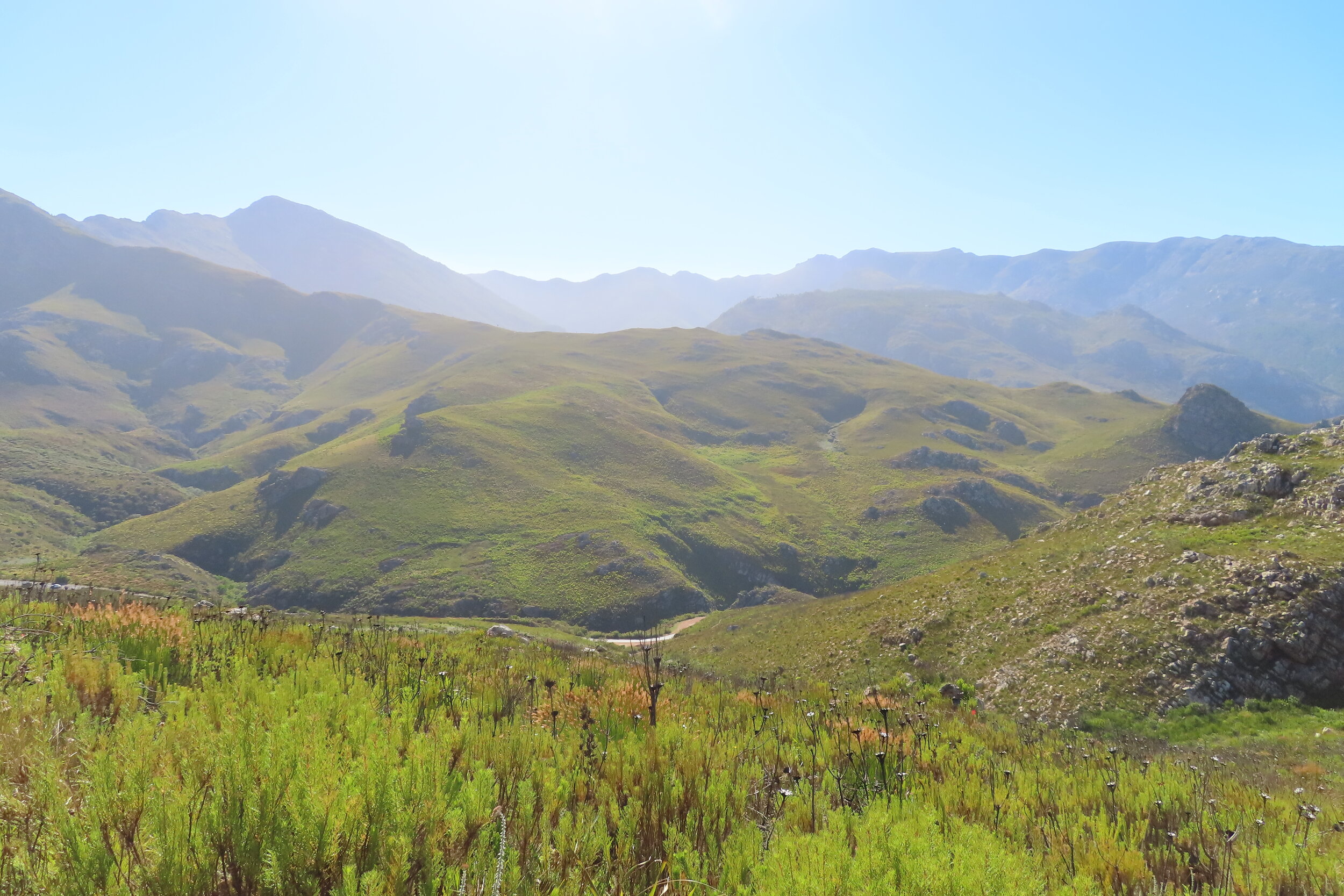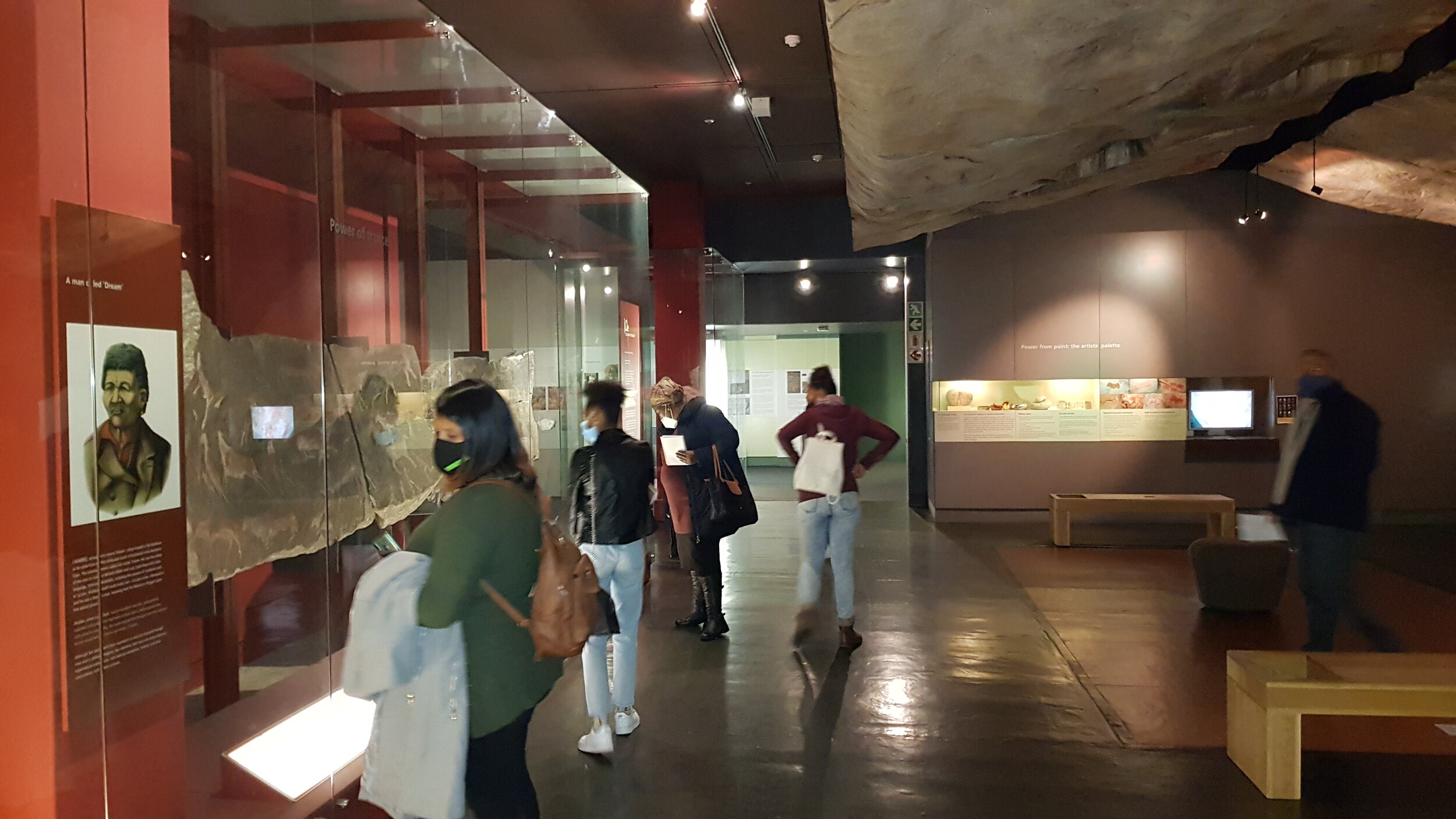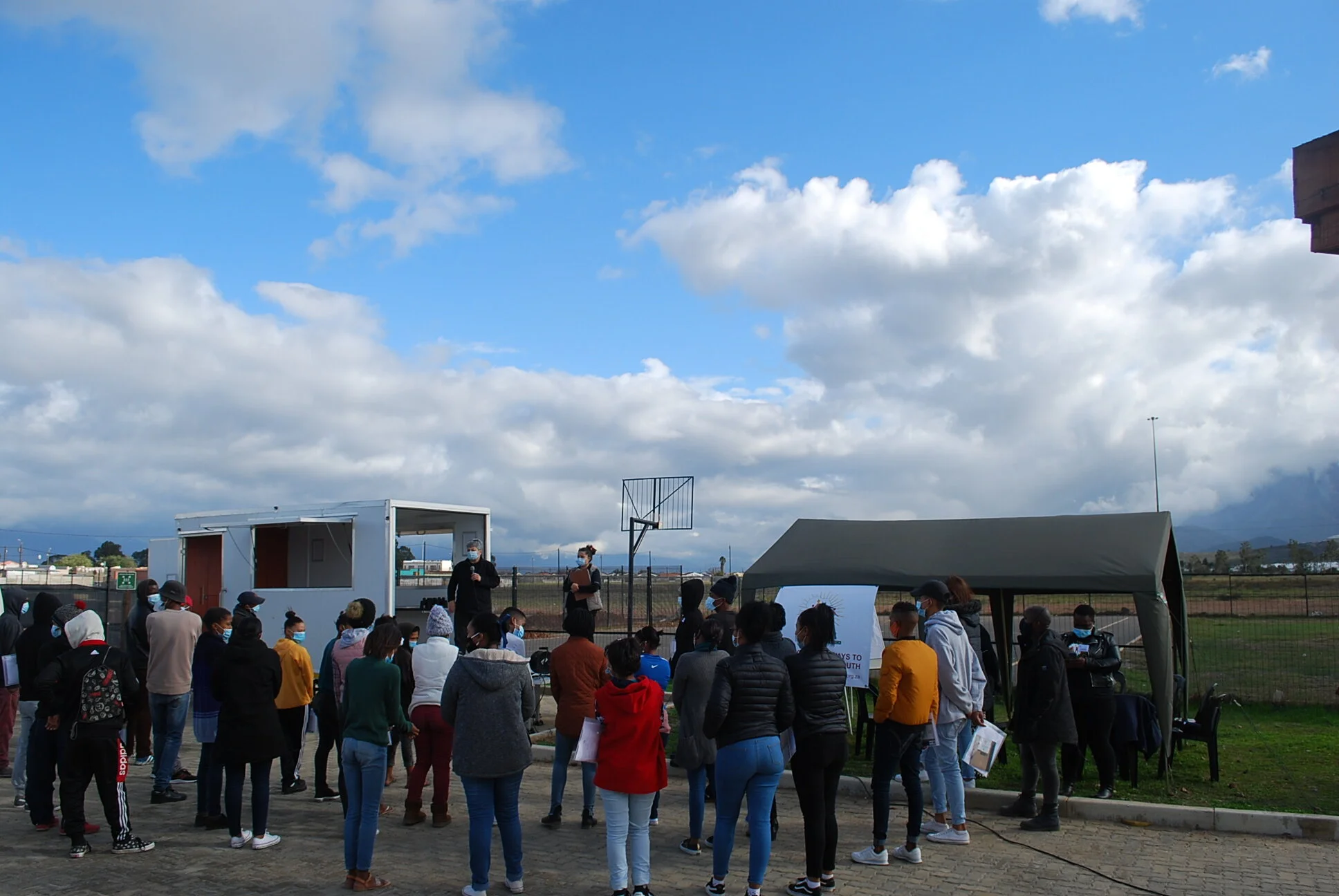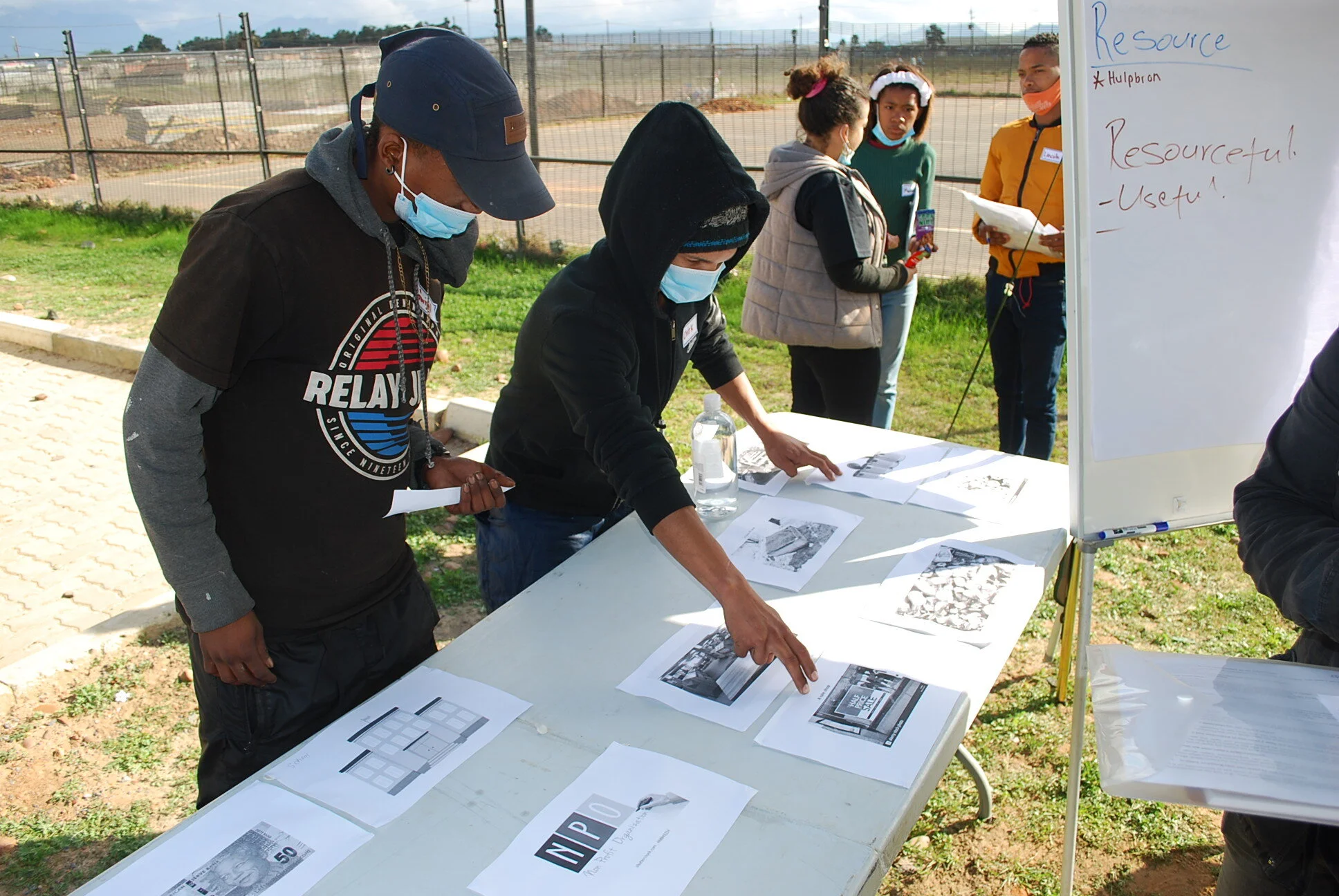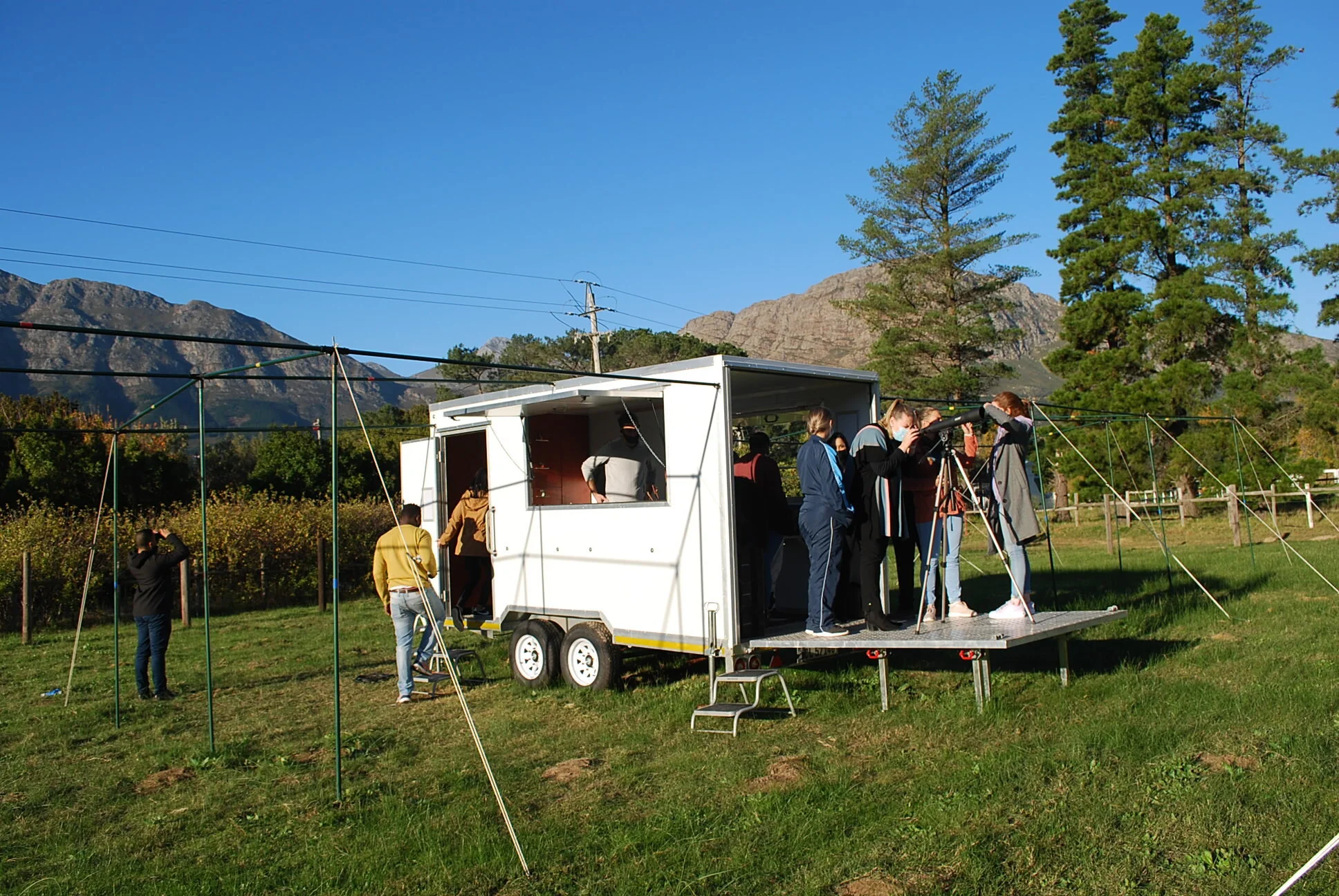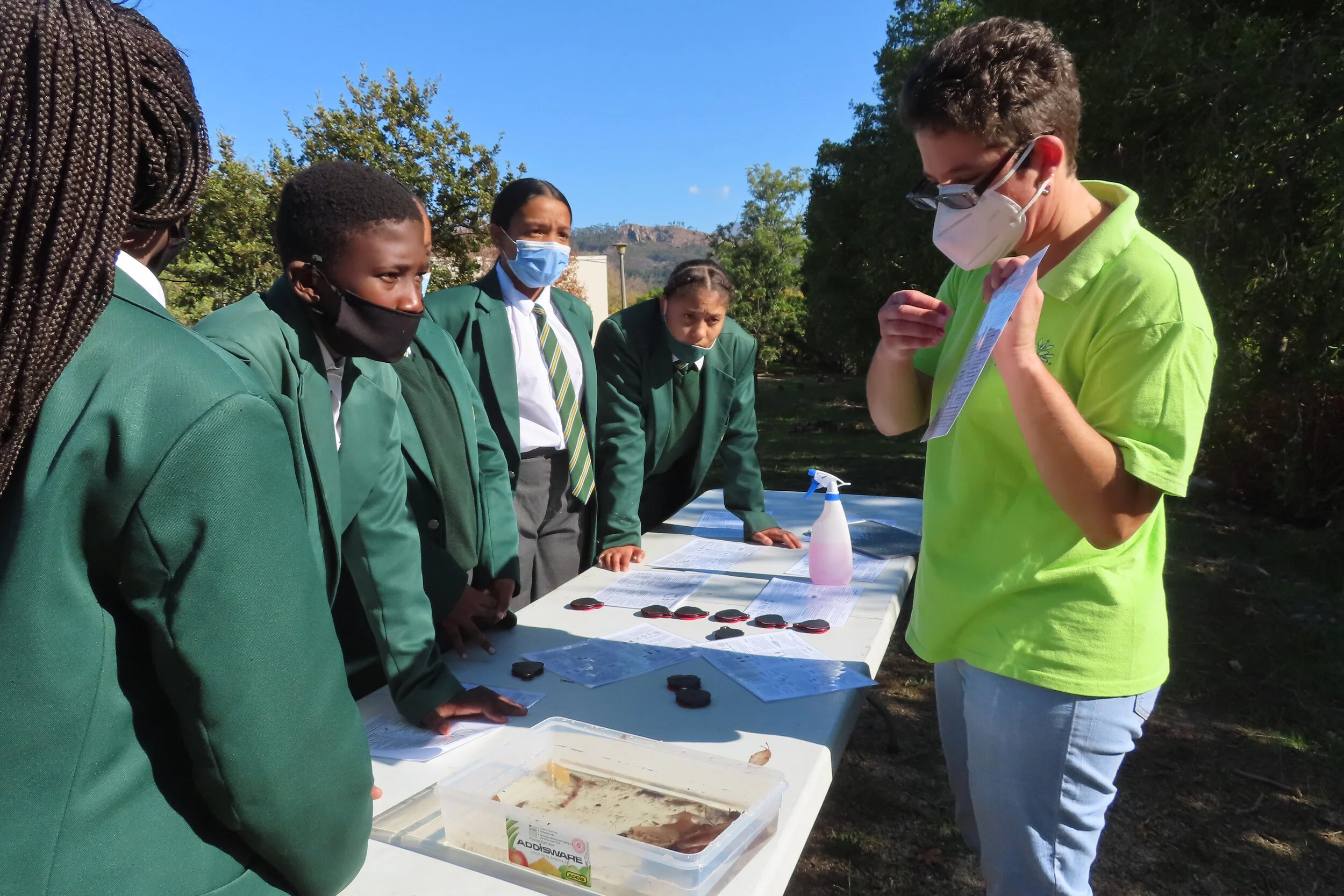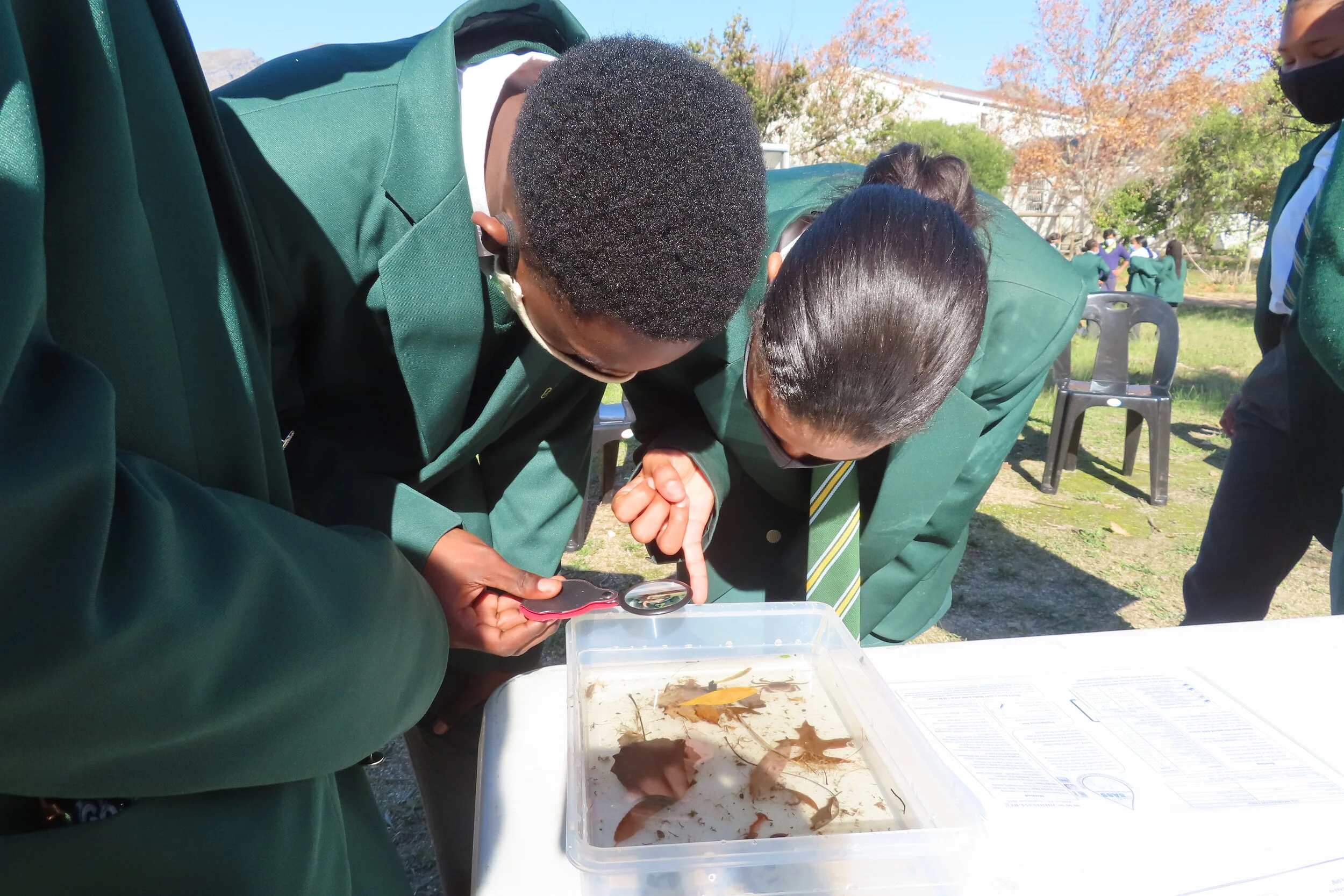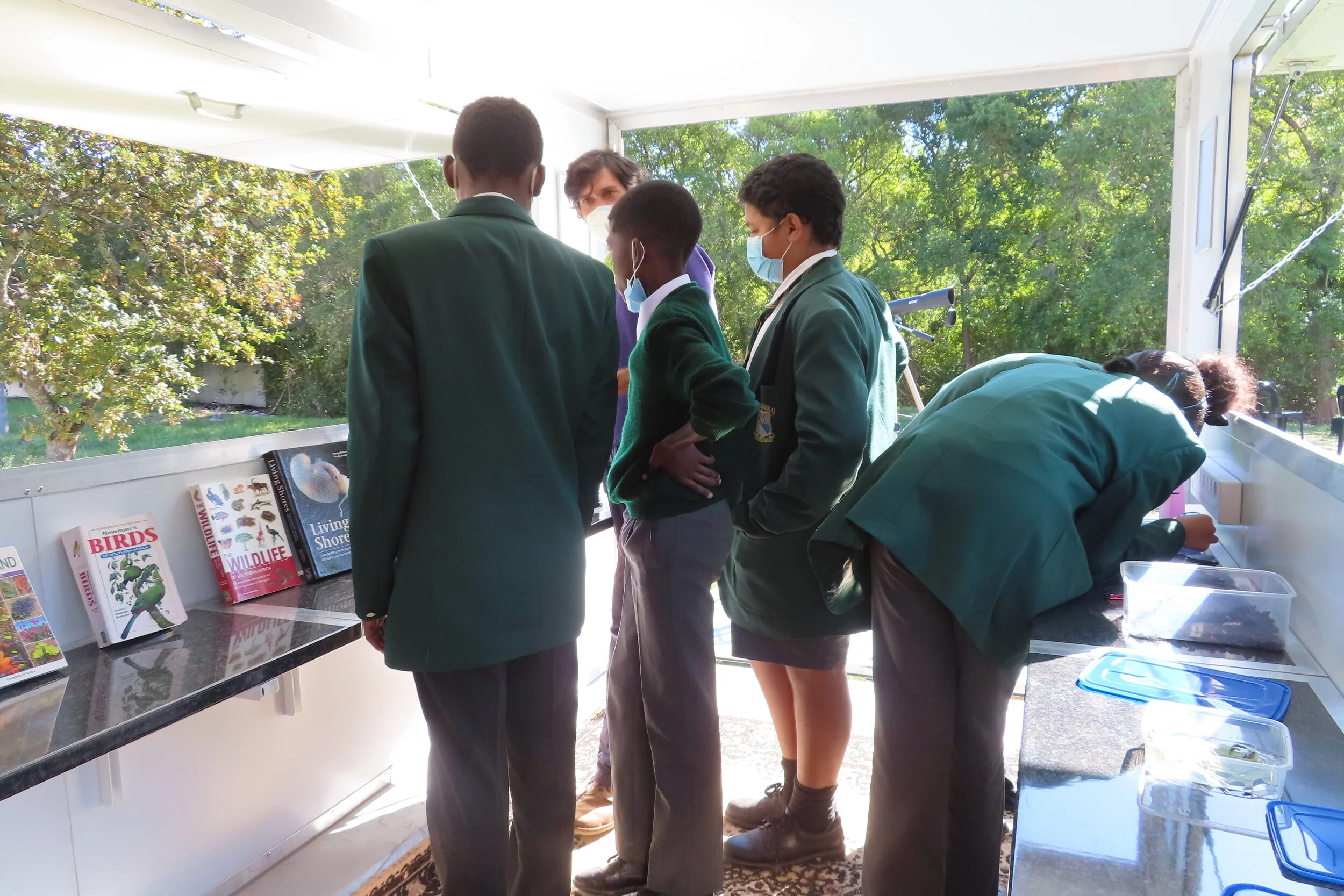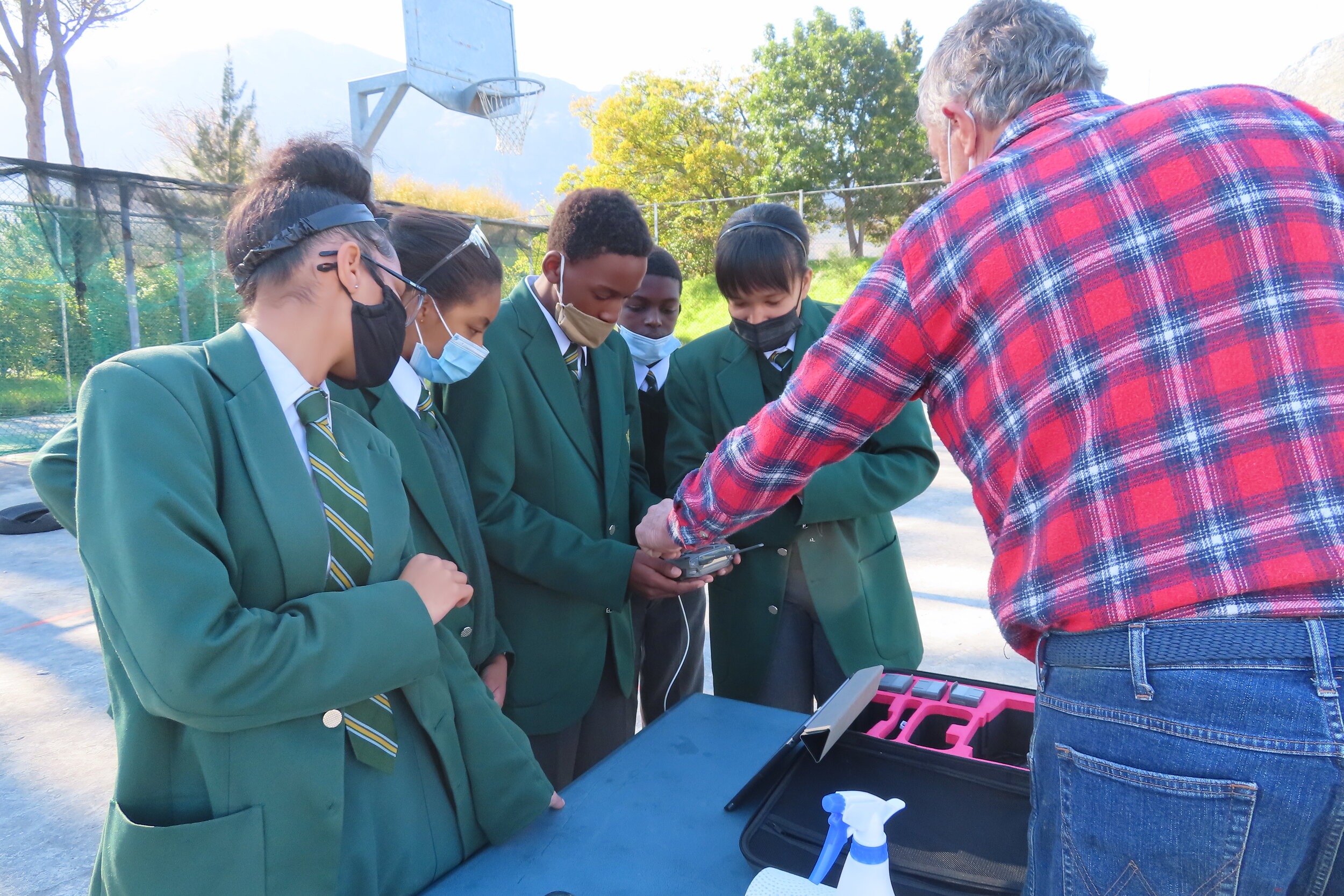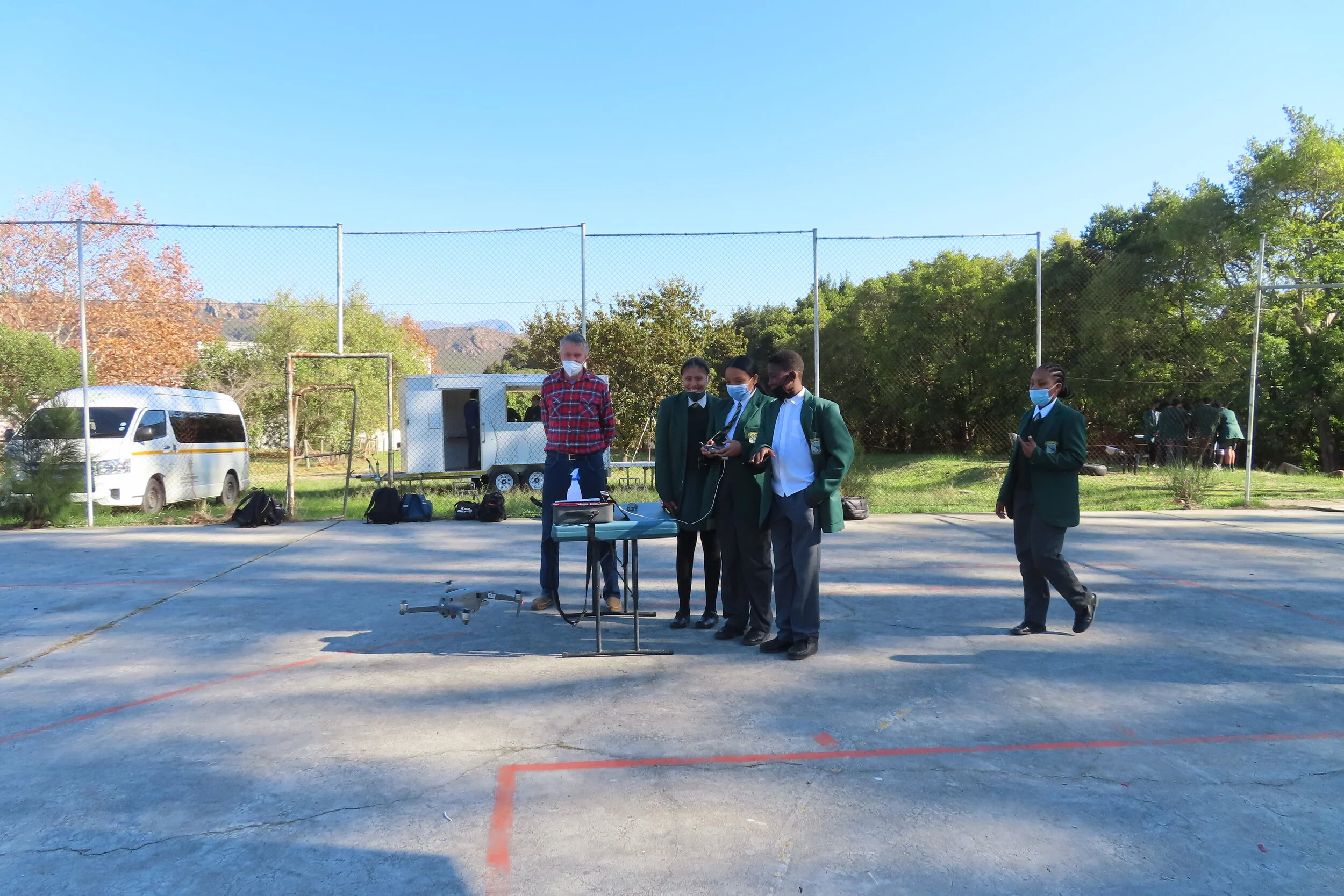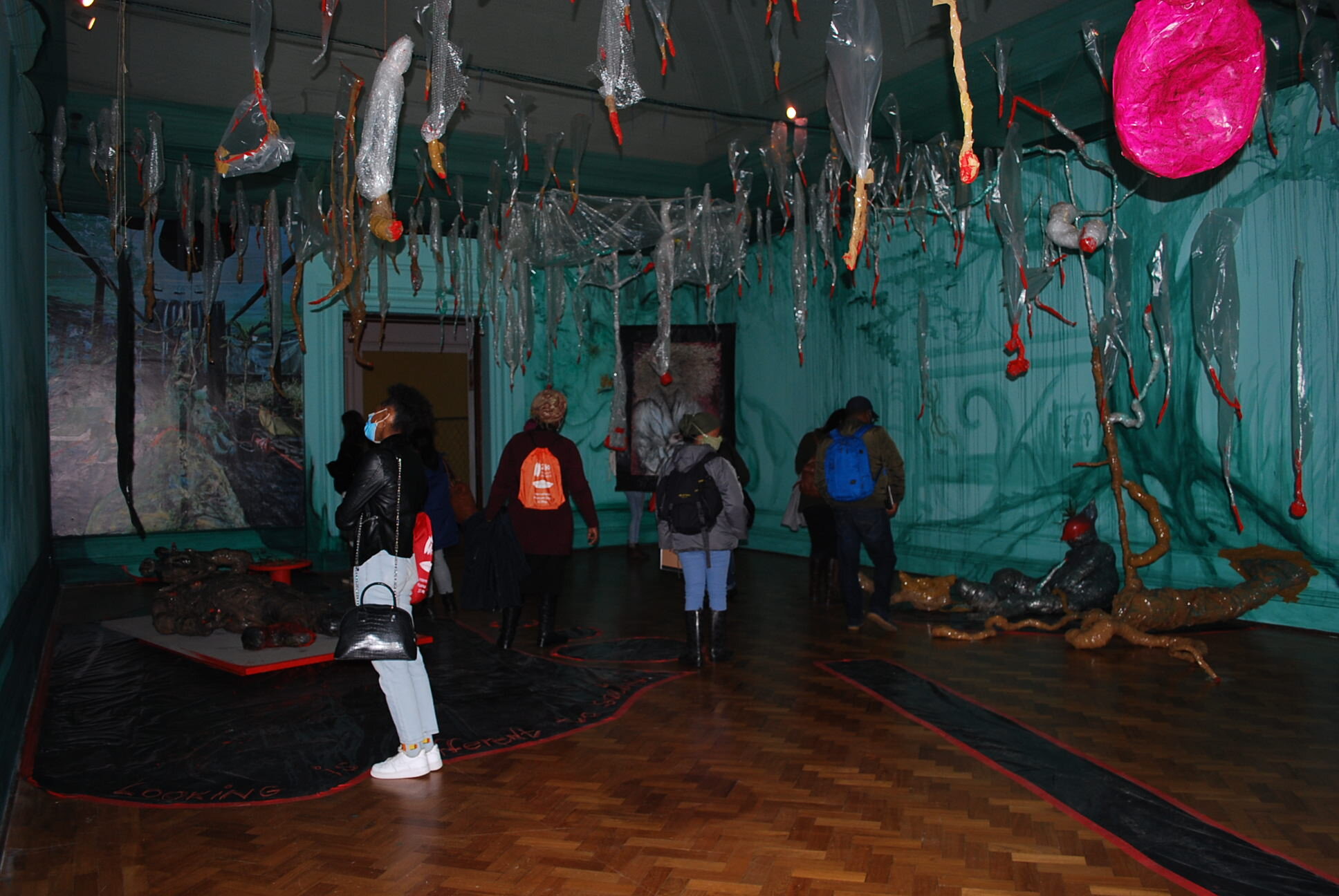The knowledge, skills and confidence gained will contribute positively to childhood development during the critical ‘First 1 000 days.’ It is the age when children are curious and develop their own sense of being, they investigate and learn.
As part of a joint Educational Global Grant Project with Rotary Club of Franschhoek and Drakenstein Valley, Cape Winelands Biosphere Reserve Facilitators arrange and accompany monthly outings for 30 Early Childhood Development (ECD) aspiring teachers. The activities aim to compliment and add onto the Level 4 ECD Teacher Training that will commence early next year. Upon completion of the one-year course the participants will become qualified NFQ Level 4* ECD teachers. Improving employment opportunities, access to educational resources, entrepreneurial initiatives, and have a greater impact within their communities as a whole.
The aim of each CWBR facilitated outing is to stimulate discussion, encourage new experiences, and broaden the participants approach and knowledge to add to the lesson plans in their respective ECD Centres. Shared activities are undertaken, and excursions to a variety of educational venues to encourage curiosity and investigative thinking. The participants also come away with educational activities and new tools to share with the children and their families.
The Educational Outings
The first outing took place along the Berg River in Franschhoek, en route to the Berg Dam, an area new to most of the participants though they live in close proximity to the Nature Reserve. It was a tactile experience exploring the sounds, smells, and textures in nature, linking environmental education to the ECD curriculum. The participants were encouraged to touch, smell, observe, and investigate the pristine surroundings, to pose questions such as where water is from, how caring for one’s environment has positive impacts, and what can be taken away from the experience outdoors - back into the classroom. The group were accompanied by two educators with in-depth knowledge in childhood and adult education and development, as well as a marine biologist, and a CWBR environmental educator.
In celebration of International Museum week, this month, the participants were hosted by IZIKO South African Museum for a full day of activities and exploration.
The participants were introduced to the history of the museum, how it came to be, and then taken on an IZIKO facilitated educational tour through the various exhibitions. The participants were encouraged to allow ‘children to be children’ in the space and to be excited and explore. The collections visited included Marine Biology, Insects, Terrestrial Vertebrates, Palaeontology, and Rock Art. Topics included comparing textures, sizes, how use language relatable to young children to group and tell apart birds, reptiles, and mammals. IZIKO educational packs with material to enrich and add value to the activities in the participants classrooms were given to the group at the end of the tour.
Walking across the Company Garden after lunch, the participants made their way to the South African National Gallery. A space that hosts outstanding collections of South African, African, British, French, Dutch and Flemish Art. After introductions to the Art Gallery, the participants explored the space later coming together as group in the Tribute section, a study exhibition for South African participants and teachers.
The participants and CWBR Facilitators were encouraged to interpret art by the art educator: not to describe an art piece through simple terms (happy/ angry/ scary) but rather through texture and colour (soft/ hard/ light/ dark). This was a completely new experience for the participants and CWBR Facilitators!
The hands-on learning and exposure to different educational environments through these outings have already shown a positive impact amongst the participants. The outings have highlighted the importance of going to educational venues and having access to resources for aspiring teachers and established ECD’s alike. This further enriches the classroom experience and creates a fully engaging and investigative learning space for the first 1000 days of a child’s life.
Additional Partners
This project is made possible through the collaboration with Bhabahthane NPO who coordinate and assist the aspiring teachers in preparation for the one-year course.
The educational outings are made possible through the partnership with Athénée Action Humanitaire, a Luxembourg NGO.
* SA National Qualifications Framework (NQF) Level 4 qualification, Certificate in Early Childhood Development Practice.



